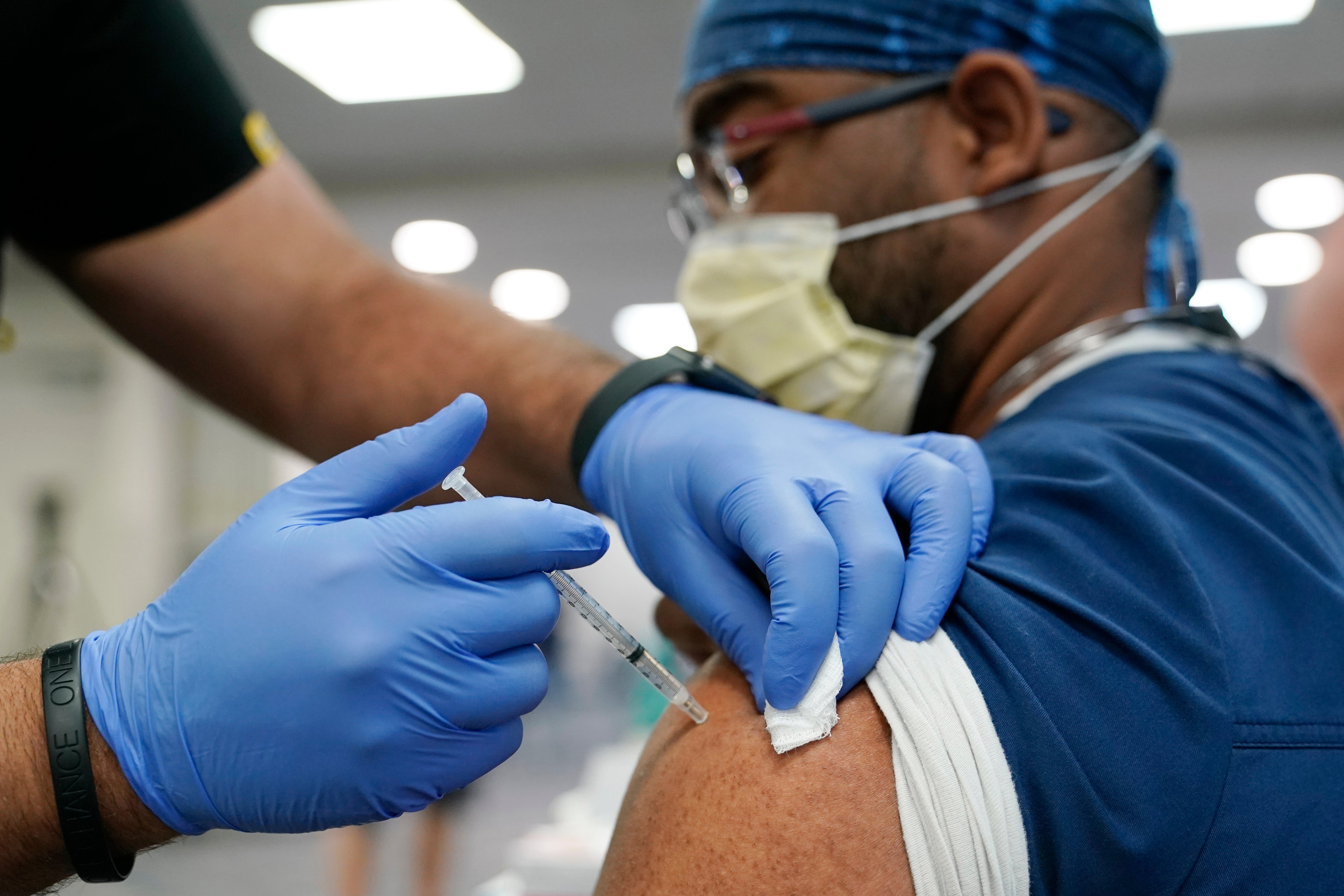Covid study linking vaccines to rare side effect of myocarditis was wrong, researchers admit
Researchers apologise after error in vaccine side effects research paper

Your support helps us to tell the story
From reproductive rights to climate change to Big Tech, The Independent is on the ground when the story is developing. Whether it's investigating the financials of Elon Musk's pro-Trump PAC or producing our latest documentary, 'The A Word', which shines a light on the American women fighting for reproductive rights, we know how important it is to parse out the facts from the messaging.
At such a critical moment in US history, we need reporters on the ground. Your donation allows us to keep sending journalists to speak to both sides of the story.
The Independent is trusted by Americans across the entire political spectrum. And unlike many other quality news outlets, we choose not to lock Americans out of our reporting and analysis with paywalls. We believe quality journalism should be available to everyone, paid for by those who can afford it.
Your support makes all the difference.A research study that linked a very rare side effect to the Covid-19 mRNA vaccines has been withdrawn by researchers after they made a major mathematical error.
The Canadian study attracted headlines after it suggested there was a 1 in 1,000 risk of people developing myocarditis or inflammation of the heart after receiving the Moderna or Pfizer/BioNTech vaccines.
But the paper’s conclusions were wrong, and the calculation flawed.
The numbers used by the researchers, from the Ottawa Heart Institute, underestimated the amount of vaccines delivered in Ottawa over a two-month period with the result being 25 times smaller than the true figure.
They had initially based their estimate on a total of 32,379 vaccines doses and 32 cases of myocarditis, when in reality more than 854,000 doses had been given between June 1 to July 31.
The study’s findings have been used by anti-vaccination websites and social media accounts in Britain, the United States and Canada.
The study was a pre-print, meaning it had yet to be peer reviewed by independent experts and accepted for publication in a reputable science journal. During the pandemic the need for scientific answers over the Covid-19 crisis and vaccine effectiveness has meant pre-print studies have been highlighted much earlier than normal.
The Covid-19 infection can also trigger myocarditis in younger people with a separate US research team showing this happened at a rate of about 450 cases per million infections among 12 to 17-year-olds during the first 12 months of the pandemic.
This compares to 77 cases of myocarditis for every one million males between 12 and 17 after an mRNA vaccine dose, meaning Covid poses a higher risk than the vaccine.
In a statement on the MedRxiv pre-print server, the researchers said: “During the process of open peer review on MedRxiv we quickly received a number of messages from reviewers concerned that there was a problem with our reported incidence of myocarditis post mRNA vaccination.
“Our reported incidence appeared vastly inflated by an incorrectly small denominator (ie number of doses administered over the time period of the study). We reviewed the data available at Open Ottawa and found that there had indeed been a major underestimation, with the actual number of administered doses being more than 800,000 (much higher than quoted in the paper).
“In order to avoid misleading either colleagues or the general public and press, we the authors unanimously wish to withdraw this paper on the grounds of incorrect incidence data.
“We thank the many peer reviewers who went out of their way to contact us and point out our error. We apologise to anyone who may have been upset or disturbed by our report.”
Join our commenting forum
Join thought-provoking conversations, follow other Independent readers and see their replies
Comments